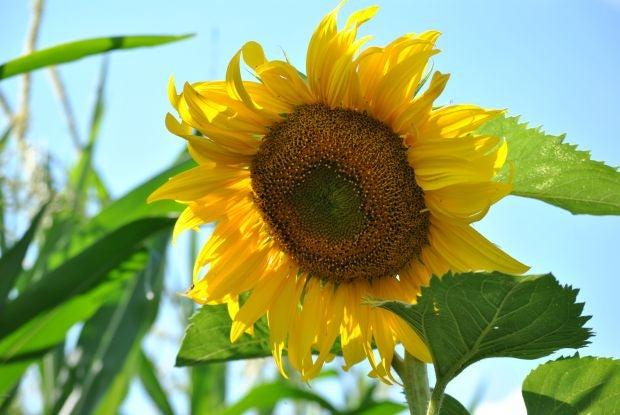If you often feel tired and run-down, your diet could help your body fight off slumps and give it the energy it needs for a dynamic day. Here are seven ways to optimize your diet for all-day energy.
Where does your energy come from?
The basic elements of food - carbohydrates, proteins and lipids - provide calories, and therefore energy. The human body converts carbohydrates into glucose, its main source of energy. The consumption of carbohydrates raises the amount of glucose in the blood, measured by the glycemia index. This rise in blood glucose levels triggers the pancreas to produce a hormone called insulin, whose function is to pump glucose into the cells. Once there, glucose supplies the body with energy. A small amount of unused glucose is stored in the muscles and liver in the form of glycogen, for use when blood glucose is in short supply; any excess is converted into fat.
Proteins are also converted into energy in the body, but less efficiently. The same applies to fats, which, although more concentrated in calories, are slower to digest and metabolize than carbohydrates.
Vitamins do not provide energy. Their role is above all to activate a large number of metabolic functions that lead to energy production. A diet rich in vegetables, fruit, legumes and cereals almost always meets the body's vitamin and mineral requirements. Some fruits also provide sugars that are rapidly converted into energy.
Discover the food choices that will give you energy.
1. A good breakfast breakfast.
As its name suggests, a good breakfast is the perfect way to replenish your energy levels after a night of fasting. Eating in the morning is essential for adults and children alike, without which the body runs on empty. Studies have shown that children who eat abreakfast This is also true for adults.
2. Iron-rich foods.
Iron-deficiency anemia is one of the most common nutritional deficiencies in our society. Iron is essential for the production of hemoglobin, the main component of red blood cells. Hemoglobin transports oxygen to cells, which use it to produce energy and perform key metabolic functions. If the body doesn't have enough iron, the red blood cells can't deliver the necessary oxygen to the cells. Symptoms of iron deficiency include chronic fatigue, lack of energy and difficulty concentrating. Foods rich in iron include red meat, organ meats, fish and seafood, eggs, dried fruit, dark-green leafy vegetables, legumes, nuts and other oleaginous nuts, seeds and whole or enriched cereals.
There are two types of iron in the diet: heme and non-heme. The former is found in meat, liver, eggs and fish. It is more easily absorbed by the body than non-heme iron, found in plants. The former, which accounts for only a third of the iron in our diet, has an absorption rate of around 25%, whereas the body absorbs less than 10% of iron from plant sources.
Vitamin C promotes the absorption of non-heme iron. To maximize the absorption of iron from fortified cereals, add strawberries or drink a glass of orange juice at the same time.
3. More complex carbohydrates.
Once digested, carbohydrates from bread, cereals, fruit, vegetables and sweet products are converted into glucose. This simple sugar provides energy for the brain, muscles and body tissues. The complex carbohydrates found in wholegrain breads and cereals, lentils and other legumes are the fuel of choice, and because they are digested slowly, they provide the body and brain with a constant supply of energy, along with vitamins, minerals and other phytonutrients that are useful for the cells.
4. Small meals, several times a day.
Interspersing snacks and light meals throughout the day ensures a constant supply of glucose. Another advantage is that you don't feel hungry. The midday meal provides fuel for the afternoon and prevents "energy crashes". The menu can be the same for a light meal as for a snack: soup and sandwich, cheese and toast, mini-pizza, yoghurt and fruit, raw vegetables, fromage blanc and cookies are all nutritious quality foods. If you plan to have a snack in the afternoon, you'll need to reduce the quantities at mealtime.
5. Stay constantly hydrated.
You need to drink 1.5 liters to stay hydrated throughout the day, more if you're exercising. Water maintains body temperature, transports nutrients and flushes out waste products. Fatigue may simply be a sign of slight dehydration, while thirst is not a reliable indicator: you can be dehydrated without realizing it. So be sure to drink regularly - water, herbal teas, light teas, fruit juices cut with water - or eat water-rich foods such as vegetables (soups), raw vegetables and fruit.


